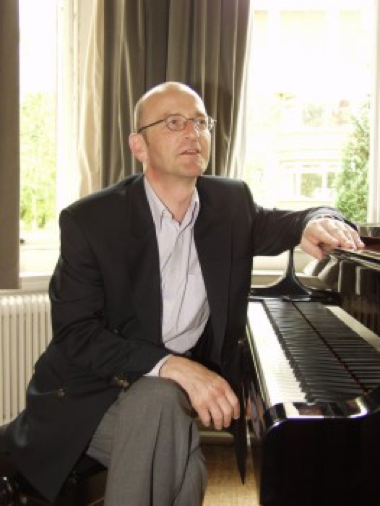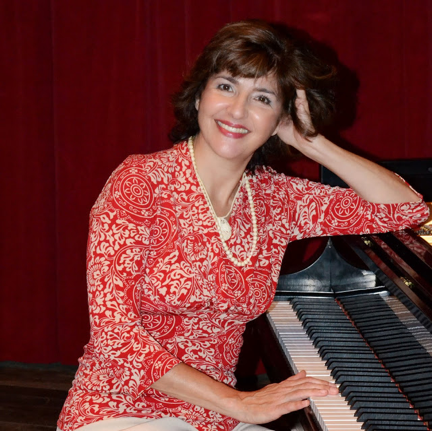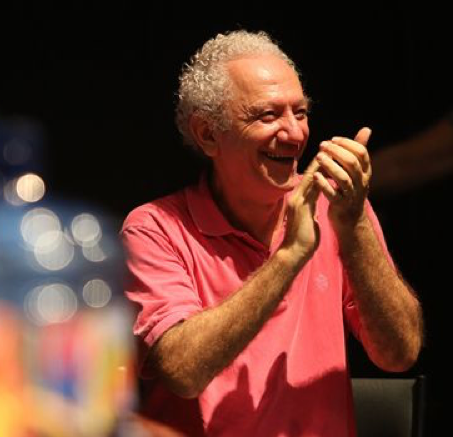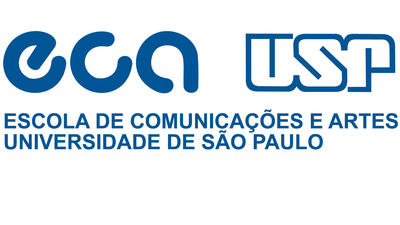Lecturers
Lecturers invited to this year's congress (in alphabetical order, by surname):
Jonathan Dunsby
 BA in music, First Class, Oxford University, aged 20; PhD in music theory, supervisor Alexander Goehr, Leeds University, aged 23. Dr. Jonathan Dunsby (Eastman School of Music, Rochester University, USA) was piano pupil of Dame Fanny Waterman; prizes in Geneva, Leeds, Munich competitions; winner of the Commonwealth Competition. Articles and reviews published in journals including Circuit, Journal of Music Theory, Music Analysis, Music and Letters, Music Theory Spectrum, Musicae Scientiae, The Musical Quarterly, 19th-Century Music, 20th-Century Music; articles on ‘memory’ and ‘performance’ in The New Grove; book chapters include music-analytical studies of Debussy, Schoenberg, Schumann; recent books include Performing Music: Shared Concerns (OUP, 1996) and Making Words Sing: Nineteenth- and Twentieth-Century Song (CUP, 2004); co-author with Arnold Whittall of Music Analysis in Theory and Practice (Faber, 1986); translator from French of Jean-Jacques Nattiez, The Battle of Chronos and Orpheus: Studies in Applied Musical Semiology (OUP, 2004). Founding Editor of Music Analysis (1982-6). Life President of the (UK) Society for Music Analysis. Guest lectures including Brazil, Canada, Greece, South Korea, Spain, in addition to frequent appearances in the UK and USA. Appointments include King’s College London, University of Southern California, University of Reading; Visiting Fellow at Princeton (Harkness Fellow, 1976) and Oxford (New College, 1992); in 2006-7 Slee Professor of Music Theory, SUNY University at Buffalo; faculty, Eastman (2007-). More information available on the site https://www.esm.rochester.edu/theory/jonathan_dunsby/.
BA in music, First Class, Oxford University, aged 20; PhD in music theory, supervisor Alexander Goehr, Leeds University, aged 23. Dr. Jonathan Dunsby (Eastman School of Music, Rochester University, USA) was piano pupil of Dame Fanny Waterman; prizes in Geneva, Leeds, Munich competitions; winner of the Commonwealth Competition. Articles and reviews published in journals including Circuit, Journal of Music Theory, Music Analysis, Music and Letters, Music Theory Spectrum, Musicae Scientiae, The Musical Quarterly, 19th-Century Music, 20th-Century Music; articles on ‘memory’ and ‘performance’ in The New Grove; book chapters include music-analytical studies of Debussy, Schoenberg, Schumann; recent books include Performing Music: Shared Concerns (OUP, 1996) and Making Words Sing: Nineteenth- and Twentieth-Century Song (CUP, 2004); co-author with Arnold Whittall of Music Analysis in Theory and Practice (Faber, 1986); translator from French of Jean-Jacques Nattiez, The Battle of Chronos and Orpheus: Studies in Applied Musical Semiology (OUP, 2004). Founding Editor of Music Analysis (1982-6). Life President of the (UK) Society for Music Analysis. Guest lectures including Brazil, Canada, Greece, South Korea, Spain, in addition to frequent appearances in the UK and USA. Appointments include King’s College London, University of Southern California, University of Reading; Visiting Fellow at Princeton (Harkness Fellow, 1976) and Oxford (New College, 1992); in 2006-7 Slee Professor of Music Theory, SUNY University at Buffalo; faculty, Eastman (2007-). More information available on the site https://www.esm.rochester.edu/theory/jonathan_dunsby/.
Cristina Capparelli Gerling
 Graduated in Music from the Federal University of Uberlândia (1972), Dr. Cristina Maria Pavan Capparelli Gerling (Federal University of Rio Grande do Sul, UFRGS) received the Master of Music degree from the New England Conservatory (1975) and Doctor of Musical Arts from Boston University (1985). She is currently professor at the Federal University of Rio Grande do Sul, where she guides scientific initiation, master's, doctorate and postdoctoral studies. She was the representative of the Arts Committee at the National Council for Scientific and Technological Development (2002-2004). Pianist with recorded CDs and intense artistic activity, her students have received expressive prizes in national and international competitions. In 2008 she was invited by Brazilian Association of Music (Rio de Janeiro) to participate in the series Trajetórias (Trajectories), and in 2009 she recorded a CD for the label Meridian (England) with the cellist Tânia Lisboa, titled The Brazilian Cello. In 2011 she released the CD titled Cristina Capparelli interpreta a obra para piano de Alda Oliveira e Jamary Oliveira (Cristina Capparelli interprets the piano work of Alda Oliveira and Jamary Oliveira). In 2014 she completed the project of recording the 8 Sonatinas and the Sonata by Camargo Guarnieri, in partnership with her colleagues Catarina Domenici, André Loss and Ney Fialkow. Having developed extensive work with the Latin American repertoire and assembled a vast collection of works by Brazilian and Latin American composers, she provides results online for the academic community. Her recent research work in the area of cognitive musicology and the study of high-level instrumental performance have been accepted in major area congresses in Brazil and abroad. As a research group coordinator, the partial results can be obtained from the website: www.ufrgs.br/gppi. In the first half of 2014, she was resident at Indiana University through the Center for Caribbean and Latin American Studies and the Latin American Music Center (Jacobs School of Music), with the support of the Fulbright Commission (that supported her for the third time). More information available on the site http://lattes.cnpq.br/5512630201287587.
Graduated in Music from the Federal University of Uberlândia (1972), Dr. Cristina Maria Pavan Capparelli Gerling (Federal University of Rio Grande do Sul, UFRGS) received the Master of Music degree from the New England Conservatory (1975) and Doctor of Musical Arts from Boston University (1985). She is currently professor at the Federal University of Rio Grande do Sul, where she guides scientific initiation, master's, doctorate and postdoctoral studies. She was the representative of the Arts Committee at the National Council for Scientific and Technological Development (2002-2004). Pianist with recorded CDs and intense artistic activity, her students have received expressive prizes in national and international competitions. In 2008 she was invited by Brazilian Association of Music (Rio de Janeiro) to participate in the series Trajetórias (Trajectories), and in 2009 she recorded a CD for the label Meridian (England) with the cellist Tânia Lisboa, titled The Brazilian Cello. In 2011 she released the CD titled Cristina Capparelli interpreta a obra para piano de Alda Oliveira e Jamary Oliveira (Cristina Capparelli interprets the piano work of Alda Oliveira and Jamary Oliveira). In 2014 she completed the project of recording the 8 Sonatinas and the Sonata by Camargo Guarnieri, in partnership with her colleagues Catarina Domenici, André Loss and Ney Fialkow. Having developed extensive work with the Latin American repertoire and assembled a vast collection of works by Brazilian and Latin American composers, she provides results online for the academic community. Her recent research work in the area of cognitive musicology and the study of high-level instrumental performance have been accepted in major area congresses in Brazil and abroad. As a research group coordinator, the partial results can be obtained from the website: www.ufrgs.br/gppi. In the first half of 2014, she was resident at Indiana University through the Center for Caribbean and Latin American Studies and the Latin American Music Center (Jacobs School of Music), with the support of the Fulbright Commission (that supported her for the third time). More information available on the site http://lattes.cnpq.br/5512630201287587.
Gretchen Horlacher
 Dr. Gretchen Horlacher (Indiana University) has taught at the University of California (UC)-Riverside and at UC-Santa Barbara, and served as chair of the Indiana University Jacobs School of Music's Music Theory Department from 2008 to 2012. In fall 2012, she began an appointment as assistant to the dean for research and administration. She has published articles and reviews in Music Theory Spectrum, Journal of Music Theory, Intégral, Music Theory Online, and Mitteilungen der Paul Sacher Stiftung. Her monograph for Oxford University Press, Building Blocks: Repetition and Continuity in Stravinsky's Music, was published in 2011. Horlacher has a special interest in the study of rhythm and meter. Her recent work deals with music of Stravinsky and Reich, and she has had a research fellowship from the Paul Sacher Foundation in Basel, Switzerland, to study Stravinsky's manuscripts. She has served as secretary for the Society for Music Theory, as well as chair of its Program Committee and a member of its Executive Board. Horlacher is also a pianist, having studied with Malcolm Bilson, and received the Prix d'Excellence from the École de Musique in Fontainebleau. More information available on the site http://info.music.indiana.edu/faculty/current/horlacher-gretchen.shtml.
Dr. Gretchen Horlacher (Indiana University) has taught at the University of California (UC)-Riverside and at UC-Santa Barbara, and served as chair of the Indiana University Jacobs School of Music's Music Theory Department from 2008 to 2012. In fall 2012, she began an appointment as assistant to the dean for research and administration. She has published articles and reviews in Music Theory Spectrum, Journal of Music Theory, Intégral, Music Theory Online, and Mitteilungen der Paul Sacher Stiftung. Her monograph for Oxford University Press, Building Blocks: Repetition and Continuity in Stravinsky's Music, was published in 2011. Horlacher has a special interest in the study of rhythm and meter. Her recent work deals with music of Stravinsky and Reich, and she has had a research fellowship from the Paul Sacher Foundation in Basel, Switzerland, to study Stravinsky's manuscripts. She has served as secretary for the Society for Music Theory, as well as chair of its Program Committee and a member of its Executive Board. Horlacher is also a pianist, having studied with Malcolm Bilson, and received the Prix d'Excellence from the École de Musique in Fontainebleau. More information available on the site http://info.music.indiana.edu/faculty/current/horlacher-gretchen.shtml.
Carlos Kater
 Dr. Carlos Elias Kater is PhD from the University of Paris IV Sorbonne (1981, FAPESP scholarship), with post-doctoral degree from the same institution (1987, CNPq scholarship) and Professor at a public national competition by the School of Music of the Federal University of Minas Gerais (UFMG, 1991). He served as Adjunct Professor at the Arts Institute of UNESP (1981-1988) and as a member of the Teaching Nucleus of UNESP (composed of 4 invited professors working directly as an advisory group of the Rector of UNESP). He was an Adjunct Professor and later Professor of the EM/ UFMG, where he directed the Center for Contemporary Music Research (1992-1994), coordinated the Postgraduate Course at the Music School/ UFMG (1994-1996) and the NAPq - Nucleus Of Research Support (1989-2000), of which he was also the founder. He created and edited for two years (1987-1998) two important magazines - Cadernos de Estudo: Análise Musical (Study Books: Musical Analysis) and Cadernos de Estudo: Educação Musical (Study Books: Musical Education), edited by Atravez, São Paulo. At that moment, these journals became references in Brazilian academic life. At UFMG he created and the journal Música Hoje (Today Music), of which he was also editor from 1997 to 2000. He is the author of published texts and books: Eunice Katunda, musicista brasileira (Eunice Katunda, Brazilian Musician, 2001), Música Viva e H. J. Koellreutter: movimentos em direção à modernidade (Música Viva and H. J. Koellreutter: Movements towards Modernity, 2001) and Musicalização através da Canção Popular Brasileira (Musicalization through the Popular Brazilian Song, in co-authoring with P. Lobão, 2001). At UFSCar (Federal University of São Carlos) he served as Visiting Professor, teaching classes and lectures, also participating in the design and implementation of the Music Education/ Licenciatura Course in Music Education (2003-2006). One of the founders of ABEM - Brazilian Association of Music Education, was for two consecutive terms his Vice President, as well as Director of the Southeast Region, and he is currently a member of its Board of Directors, acting on the Editorial Team of the Journal. It realizes projects of creative formation with music next to teachers. More information available on the site http://lattes.cnpq.br/1845763886645209.
Dr. Carlos Elias Kater is PhD from the University of Paris IV Sorbonne (1981, FAPESP scholarship), with post-doctoral degree from the same institution (1987, CNPq scholarship) and Professor at a public national competition by the School of Music of the Federal University of Minas Gerais (UFMG, 1991). He served as Adjunct Professor at the Arts Institute of UNESP (1981-1988) and as a member of the Teaching Nucleus of UNESP (composed of 4 invited professors working directly as an advisory group of the Rector of UNESP). He was an Adjunct Professor and later Professor of the EM/ UFMG, where he directed the Center for Contemporary Music Research (1992-1994), coordinated the Postgraduate Course at the Music School/ UFMG (1994-1996) and the NAPq - Nucleus Of Research Support (1989-2000), of which he was also the founder. He created and edited for two years (1987-1998) two important magazines - Cadernos de Estudo: Análise Musical (Study Books: Musical Analysis) and Cadernos de Estudo: Educação Musical (Study Books: Musical Education), edited by Atravez, São Paulo. At that moment, these journals became references in Brazilian academic life. At UFMG he created and the journal Música Hoje (Today Music), of which he was also editor from 1997 to 2000. He is the author of published texts and books: Eunice Katunda, musicista brasileira (Eunice Katunda, Brazilian Musician, 2001), Música Viva e H. J. Koellreutter: movimentos em direção à modernidade (Música Viva and H. J. Koellreutter: Movements towards Modernity, 2001) and Musicalização através da Canção Popular Brasileira (Musicalization through the Popular Brazilian Song, in co-authoring with P. Lobão, 2001). At UFSCar (Federal University of São Carlos) he served as Visiting Professor, teaching classes and lectures, also participating in the design and implementation of the Music Education/ Licenciatura Course in Music Education (2003-2006). One of the founders of ABEM - Brazilian Association of Music Education, was for two consecutive terms his Vice President, as well as Director of the Southeast Region, and he is currently a member of its Board of Directors, acting on the Editorial Team of the Journal. It realizes projects of creative formation with music next to teachers. More information available on the site http://lattes.cnpq.br/1845763886645209.
Joseph Straus
 PhD from Yale University and president of the Society for Music Theory (SMT, 1997-1999), Joseph Straus (City University of New York, CUNY) is a music theorist specializing in music of the twentieth century, with research interests that include set theory, voice-leading in post-tonal music, the music of Stravinsky, and the music Ruth Crawford Seeger. In his lecture he will address aspects of harmony and voice leading in the music of Stravinsky, turning to the problems of formal continuity in a repertoire so obviously discontinuous in so many ways, from approaches associated with serial harmony, to questions focused on expression and meaning. His book Introduction to Post-Tonal Theory (1990, 2004, Prentice-Hall) is a standard college textbook on this topic. It provides the basis for the development of analytical concepts that have emerged since the mid-twentieth century. His book Remaking the Past (1990) received the Wallace Berry award from the Society for Music Theory (SMT). In the field of studies that address disability as a cultural construct, rather than a medical pathology, he published Extraordinary Measures: Disability in Music (Oxford U. Press, 2011) and Sounding Off: Theorizing Disability in Music (co-edited with Neil Lerner, by Routledge, 2006). In the field of studies on the production of women, he published The Music of Ruth Crawford Seeger (Cambridge U. Press, 1995) and Anthology of Music by Women for Study and Analysis (Prentice-Hall, 1993). Previous work includes Schenker studies, as in Unfoldings: Essays in Schenkerian Theory and Analysis (edited by Carl Schachter by Oxford U. Press, 1998). More information on the site:
https://www.gc.cuny.edu/Page-Elements/Academics-Research-Centers-Initiatives/Doctoral-Programs/Music-(Ph-D-D-M-A-)/Faculty-Bios/Joseph-Straus
PhD from Yale University and president of the Society for Music Theory (SMT, 1997-1999), Joseph Straus (City University of New York, CUNY) is a music theorist specializing in music of the twentieth century, with research interests that include set theory, voice-leading in post-tonal music, the music of Stravinsky, and the music Ruth Crawford Seeger. In his lecture he will address aspects of harmony and voice leading in the music of Stravinsky, turning to the problems of formal continuity in a repertoire so obviously discontinuous in so many ways, from approaches associated with serial harmony, to questions focused on expression and meaning. His book Introduction to Post-Tonal Theory (1990, 2004, Prentice-Hall) is a standard college textbook on this topic. It provides the basis for the development of analytical concepts that have emerged since the mid-twentieth century. His book Remaking the Past (1990) received the Wallace Berry award from the Society for Music Theory (SMT). In the field of studies that address disability as a cultural construct, rather than a medical pathology, he published Extraordinary Measures: Disability in Music (Oxford U. Press, 2011) and Sounding Off: Theorizing Disability in Music (co-edited with Neil Lerner, by Routledge, 2006). In the field of studies on the production of women, he published The Music of Ruth Crawford Seeger (Cambridge U. Press, 1995) and Anthology of Music by Women for Study and Analysis (Prentice-Hall, 1993). Previous work includes Schenker studies, as in Unfoldings: Essays in Schenkerian Theory and Analysis (edited by Carl Schachter by Oxford U. Press, 1998). More information on the site:
https://www.gc.cuny.edu/Page-Elements/Academics-Research-Centers-Initiatives/Doctoral-Programs/Music-(Ph-D-D-M-A-)/Faculty-Bios/Joseph-Straus








